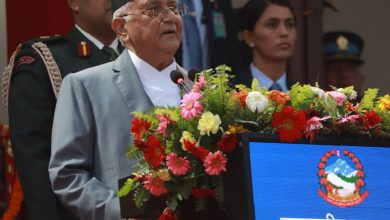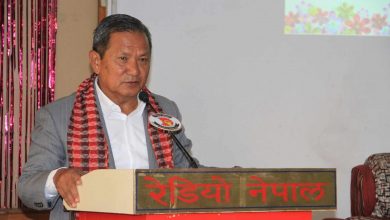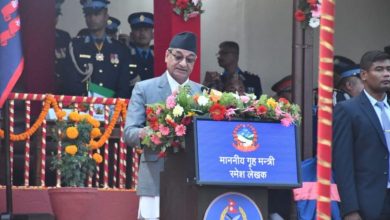Stakeholders call for focus on human aspects in biodiversity conservation laws
Kathmandu, Aug 24: Stakeholders have stressed the importance of prioritizing human aspects while drafting laws related to biodiversity conservation.
The discussants expressed such views during a programme on ‘Mainstreaming Natural Resources Safeguards into Environmental Legislations and Biodiversity Strategy’ organized by WWF Nepal and the Good Governance Protection Forum in coordination with the Infrastructure Development Committee of the House of Representatives. Dipak Bahadur Singh, Chairperson of the Committee, viewed it as essential to forward environmental conservation with human considerations.
“Every organism in nature has an equal right to live, but we must pay more attention to the human aspect. Laws should be crafted to promote development while preventing destruction,” Singh stated. He further emphasized the importance of considering future generations in infrastructure development. “If we fail to make laws that address everyone’s concerns today, future generations will bear the consequences.
The laws we make now should endure for at least 50 years, ensuring that future generations benefit from the conservation and infrastructure developments,” Singh added. Similarly, former Minister for Physical Infrastructure and Transport, Prakash Jwala, said infrastructure development could be forwarded without making any harm to forests, environment, or biodiversity.
Utmost coordination among federal, provincial, and local levels is required while drafting laws that help conserve and utilize natural resources. Moreover, former Forest and Environment Minister, Shankar Bhandari, stressed paying heed to human aspects in wildlife conservation. According to him, though some efforts were made during his tenure, they were not sufficient. Former Urban Development Minister Sita Gurung expressed concern over the huge human loss incurred in the process of wildlife protection.
“Entire settlements are being displaced due to monkey menace, and other wildlife were also posing severe threats. When drafting laws in Nepal, greater attention must be paid to practical and human aspects,” Gurung remarked. Members of parliament Pratima Gautam, Sushila Shrestha, Rajendra Bajgai, and Prem Maharjan mentioned that the issues related to human-wildlife conflict were frequently raised in the parliament, but no effective solutions were put in place.
Policy expert Kamal Subedi was of the view that policies and laws could be created in a way that takes into account both present and future generations. Chairperson of the Good Governance Protection Forum, Jayadurga Budhathoki, highlighted the Forum’s work in good governance, biodiversity, climate change, and sustainable development. She explained the programme aimed to coordinate policy arrangements and focus on the human aspect of biodiversity conservation.
Similarly, a Natural Resources Management Programs Specialist from USAID Nepal’s Environment and Resilience Office, Netra Narayan Sharma (Sapkota), opined that there is a huge importance of nature, people, and the planet in biodiversity conservation. He expressed USAID’s willingness to collaborate with lawmakers and the government of Nepal, especially in safeguarding environmental conservation and natural resources.
Four working papers on natural biodiversity conservation, natural resource protection, and legal aspects were presented by Dr Arjun Khadka, legal expert Dhananjaya Poudel, forest expert Dr Alka Sapkota, environment engineer, and Arun Sharma, team leader. The workshop was attended by 45 lawmakers and other stakeholders. —RSS







Comments